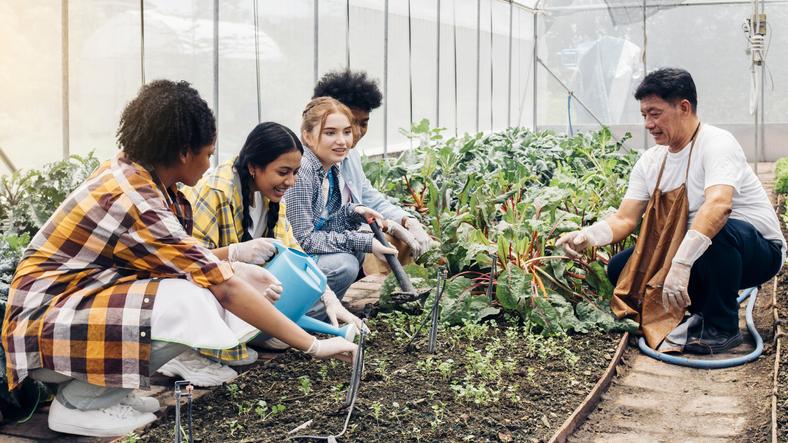
The dos and don’ts of getting started with service learning
You may also like
So, you’re interested in teaching service learning, or you’ve been tasked to incorporate service learning into your classroom. For all its benefits for the student, service learning can be quite daunting for the teacher. After all, there are many more moving parts to a service learning subject than a regular subject, and more stakeholders are involved.
Service learning is more than a subject
Service learning is an experiential pedagogy that integrates meaningful community service with academic study and reflection. It provides students with practical learning experiences while addressing societal needs. Recognised internationally as a high-impact pedagogy in higher education, service learning is associated with a wide range of outcomes, some of which are not easy to achieve in more traditional classroom settings. Research has shown positive relationships between service learning and other desirable outcome factors such as student retention and graduation rates. Given these benefits, it’s not surprising that service learning has been widely adopted in K-12 and higher education.
Teachers play a critical role in service learning. Our research indicates that, compared with factors such as student motivation and background, the student learning experience is the only factor consistently and significantly impacting the core learning outcomes. This underpins many of our recommendations for aspiring teachers embarking on service learning. The teachers must be able to properly prepare students for their service, help them apply their classroom knowledge in new contexts, and critically reflect on their service learning experience and learn from it.
- How service learning can help students create a positive change in the community
- Changing lives through community engagement and outreach
- Open to all? Using our physical and digital spaces to better engage local communities
With this in mind, we offer one DON’T and three DOs for teachers beginning their service learning journey.
Don’t: instruct students to independently project plan without a framework in place
You could argue that students who are asked to identify their own projects would be more likely to come up with something they are interested in. But if you are not involved in your students’ project planning, how will you ensure they are sufficiently prepared to complete their projects?
Project coordination often involves negotiation, compromise and patience, aspects that may be beyond the capabilities of many undergraduate students. Make sure to provide a framework they can use.
Do: choose a project or community you are passionate about
Are you a computer science teacher with a passion for computer games? One of the most interesting and successful projects we have seen brought students to serve in a centre for the physically disabled. Before their service, students developed virtual reality games that encouraged moving and stretching for the patients. Over time, their efforts blossomed into an open-source platform hosting customised solutions for special education schools in Hong Kong. When working with something that you care about, your expertise becomes a resource. This, in turn, makes it easier for you to effectively prepare and support your students.
Do: design projects that provide immediate benefits for the target community
While there are many meaningful advocacy projects that can raise awareness for a worthy cause, students learn best in service learning when they perceive that their efforts are of real value and appreciated by the community.
As an example, our Department of Applied Mathematics has a service learning project in which students are tasked to perform data analysis for non-governmental organisations to help with project reporting or proposal writing. As part of their project, students get involved as volunteers in an outreach activity run by the NGO. This brings them into contact with the target community and vividly illustrates the societal challenges that make the NGO’s services necessary.
Do: make sure the project plan is concrete and practical
While starting with tightly prescribed projects may seem overly restrictive, remember, as the teacher, you are also learning. This is especially critical when dealing with larger student groups.
For example, if your project involves providing interest workshops to children from low-income families, confirm the logistics, such as the detailed schedule and location, in advance with your service partner and also have an agreement on the learning outcomes and tasks to be covered. These parameters provide a structure upon which the service project can be scaffolded, for you and your students. More pragmatically, unclear expectations constitute the vast majority of the complaints we hear from students and are also one of the major reasons service learning partnerships do not work out. Tightly prescribing a project helps minimise this risk. It also informs your partner of your expectations and how they can cooperate with your team.
Service learning offers an amazing experience, unexpected opportunities for teachers and students, and real community benefits. However, it does take additional effort on the part of the teacher compared with more traditional classroom teaching. So that you can maintain your passion for teaching students and serving the community, it is crucial for teachers to prioritise their own physical and emotional well-being when teaching service learning. After all, as the well-known airline safety instruction goes: “Secure your own oxygen mask before assisting others.”
Grace Ngai is head of the Service-Learning and Leadership Office at the Hong Kong Polytechnic University.
If you would like advice and insight from academics and university staff delivered direct to your inbox each week, sign up for the Campus newsletter.




